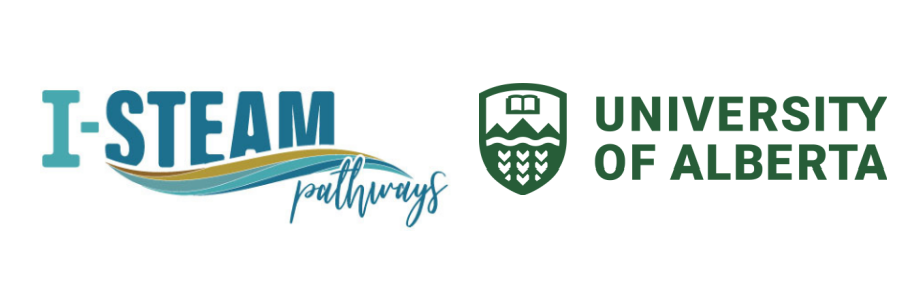Applications for the summer 2025 program are now closed.
Applications for the 2026 program will open in December.
To apply for the summer 2026 program, you need to:
- Check your eligibility below and provide proof of Indigeneity, i.e. a current Status or Membership card,
- Review the available 2025 Research Projects and select your preferred three (Note: you may not be allocated any of your preferred choices),
- Complete and submit the application form.
Applicant Eligibility
To be eligible to apply for the I-STEAM Pathways program, you will:
- Be a registered First Nations, Métis or Inuit undergraduate student attending a post-secondary institution in Canada and provide Proof of Indigeneity, as above. (Preference will generally be given to First Nations, Métis or Inuit resident in Alberta).
- Be enrolled in an undergraduate program. Students must have completed at least 1st year of post-secondary. (Proof of enrolment in an undergraduate program at a Canadian post-secondary institution will be required from those who are shortlisted for an interview.)
- Be willing and available to work as Summer Environmental Research Intern between May and August 2025 (shorter work periods may be possible upon negotiation with specific projects).
- Complete the application form through the link provided.
Note: As part of our two-stage selection process, only applicants who are successful in the first stage will be contacted to participate in an interview before the final selection is made.
Program Structure
- A paid, full-time summer research internship (12-16 weeks in duration), supervised by a University of Alberta faculty member who is an experienced researcher. Full funding for intern salaries (~$3000/month gross) is provided.
- A series of one-day seminars on environmental-related topics.
- An end-of-summer celebration of achievements in which students will present the research they engaged in during their internship and receive certificates.
Key Dates and Timelines
- December 15, 2025 : Student applications open.
- January 31, 2026: Student applications portal will close.
- February – Interviews: Applicants who advance from initial screening to the interview stage will be contacted for an interview, provided that they have submitted proof of Indigeneity, as above.
- February 28,2026: Interns’ recruitment will be completed, including initial screening, interviews, selection and matching of final student internship candidates to supervisors/projects. Supervisors will be invited to participate in the interview and process of matching students to projects.
- First week of March, 2026 – Final Selection: Applicants who are successfully interviewed and matched to a project and supervisor will be informed from this date.
- May-August, 2026 – Internship Placements: Project placements may vary in length but are normally 16 weeks. All projects will take place within this timeframe.
If you have any questions regarding the application and selection process, please contact us at isteam@ualberta.ca

